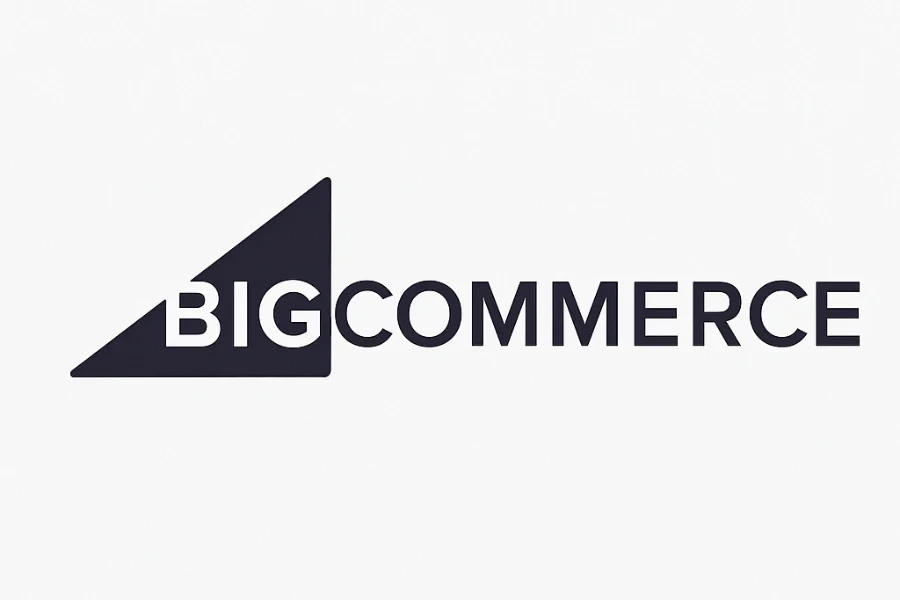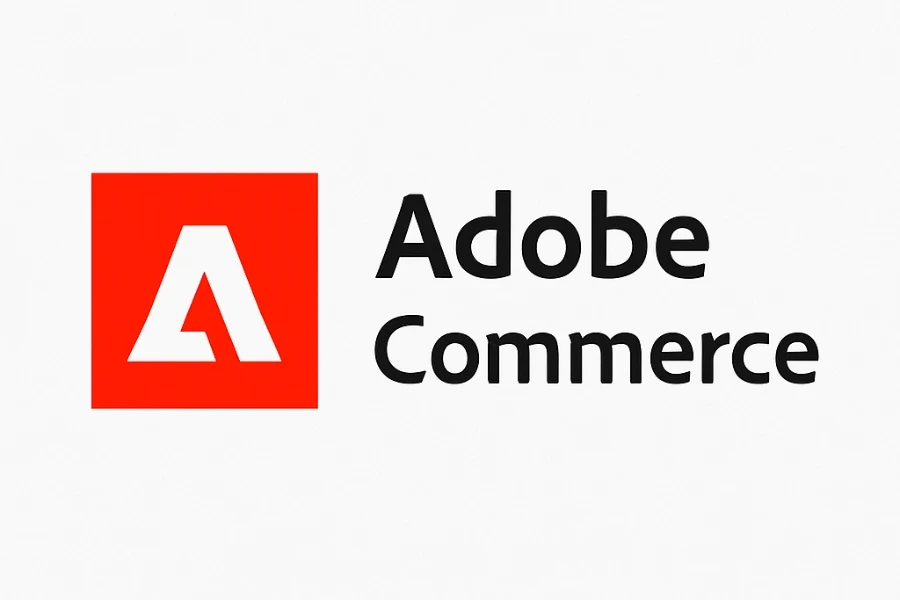If you are a newcomer to ecommerce, you’ve probably looked at Shopify along the way or shopped around in Shopify alternatives to build and host your online storefront. Shopify’s ease of use, simple setup, and large marketplace of applications and add-ons make it a popular choice.
Of course, there are added expenses that raise the cost of basic subscription pricing, like premium themes that cost from $150 to $350. Using payment methods aside from Shopify Payments also comes with a transaction fee of 0.5%-2% per transaction.
For ecommerce businesses that seek varying pricing models, functionalities, or scalability, it may prove advantageous to explore Shopify alternatives. Below are five Shopify alternatives through which you can effectively create and develop your online ecommerce business.
Table of Contents
Top 5 Shopify alternatives for ecommerce businesses
1. WooCommerce
2. BigCommerce
3. Wix eCommerce
4. Squarespace
5. Adobe Commerce:
Launch faster and grow smarter with Alibaba.com
Top 5 Shopify alternatives for ecommerce businesses

1. WooCommerce
For WordPress enthusiasts, in all likelihood, one the best alternatives for taking complete control of an online store is WooCommerce. This open-source plugin (i.e., it comes for free) turns an ordinary WordPress website into a proper, responsive online ecommerce website. With support for 67 languages and access to thousands of plugins for an extra layer of customization, it is little wonder that WooCommerce possesses more than 20% market share in the ecommerce platform market, second only to Shopify.
What is special about WooCommerce as a Shopify alternative for ecommerce beginners:
- It is absolutely free: This WordPress plugin is free to install and use, which means there is no subscription fee to get started for small businesses.
- Scalable: Companies can add more features and add-ons into their online store with the increase in business sales.
- Flexible: There are countless plugins through which businesses can integrate payment gateways, SEO modules, shipping configurations, and many such features.
- No transaction charges: WooCommerce doesn’t charge its own transaction fees. Users only pay the standard processing fees charged by payment providers.
- Integration-friendly: Business owners can integrate their online store with tools such as AliDropship and Spocket for dropshipping.
Yet, there are limitations in WooCommerce that should be noted by beginners:
- Requires WordPress knowledge: Those new to WordPress might find it slightly difficult to set up and manage WooCommerce.
- Maintenance responsibility: the responsibility for updates, website backups, and security falls on business owners (which, for non-tech individuals, is not an easy task).
- Hosting expenses: Third-party web hosting is used by WooCommerce, contributing to additional costs.
- Paid extensions: The core plugin is free, though advanced features need to be unlocked through paid extensions.
- Limited support: Users will have to depend on forums and community support since there is no dedicated customer support.
2. BigCommerce

BigCommerce is another affordable Shopify alternative. As a self-hosted Software-as-a-Service (SaaS) platform, it eliminates the technical headaches of web hosting so it’s more accessible to those without technical expertise. Its standout features like built-in real-time shipping and product reviews make it a great option for ecommerce newbies. Not surprisingly, as of Q1 2025, over 41,000 online stores use BigCommerce to grow their ecommerce business.
What makes BigCommerce a good option for beginners:
- No transaction fees: Like WooCommerce, businesses on BigCommerce just pay the standard processing fees that payment gateways charge.
- Built-in features: BigCommerce has advanced features like real-time shipping, product reviews so you don’t need extra third-party apps.
- Multi-channel selling: BigCommerce allows you to sell on multiple platforms like Amazon, eBay, and Facebook from your dashboard.
- Dropshipping: Dropshippers can connect with their suppliers through integration plugins like AliExpress Dropshipping, Spocket, and Wholesale2B.
But BigCommerce also has limitations beginners should consider:
- Learning curve: While BigCommerce is user-friendly, it has so many features it can be overwhelming for beginners.
- Subscription cost: Monthly fees can get expensive as your business grows and needs more advanced features.
- Theme selection: You only get limited free store templates and the premium ones are very expensive.
- Complexity for newbies: Beginners might feel the platform has more features than they need and can get analysis paralysis trying to navigate the tools.
3. Wix eCommerce

Wix eCommerce is another option for small businesses and brands who are new to ecommerce and don’t like coding (or don’t have time to learn it). Wix is known for its easy-to-use drag-and-drop editor and AI-powered tools that can make custom website layouts based on simple text descriptions. It has more than 258 million users around the world.
Why Wix is a Shopify alternative for beginners:
- Ease of use: Even people who have never coded before can build their online store with its drag-and-drop design interface.
- AI website building tools: Beginners can use AI-powered tools to automatically create store layouts that fit their needs.
- Prices that are reasonable: Wix plans start at $29/month and include basic features like online payment systems and 50GB of storage.
- Built-in tools: Wix stores come with important ecommerce tools like inventory management, multiple payment gateways, and marketing integrations already installed to help businesses run their operations more smoothly.
- Wide selection of templates: Wix gives users access to a wide range of professional-looking templates, which they can use to make storefronts that look good and work well.
However, it’s important to be aware of Wix’s limitations:
- Limited scalability: Due to its limited scalability features, Wix is not the best choice for users who intend to expand their businesses considerably.
- Smaller App store: Wix has fewer apps and integrations than WooCommerce and BigCommerce.
- Challenges with customization: Users find it difficult to alter online store templates beyond the pre-made choices that are offered.
4. Squarespace

Squarespace is yet another all-in-one website building platform which ecommerce businesses view as one of the top Shopify alternatives. Renowned for having well over 4 million websites which run on the platform, Squarespace is an excellent solution for design-oriented ecommerce businesses who care most about the visual appeal of their online ecommerce website above anything else.
Why Squarespace is a viable Shopify alternative for beginners:
- Breathtaking design templates: Squarespace has numerous templates, offering unique features that match the unique needs of ecommerce brands.
- Beginner-friendly: Squarespace is extremely easy to use, even for those who don’t have any technical or programming skills.
- Embedded ecommerce functionality: Squarespace has built-in features for payment integration and order processing and inventory management from the very beginning.
- Marketing functionalities: The platform also supports business expansion through email marketing features, SEO optimization features, and integration features for social media.
- All-in-one platform: Squarespace has no need for plugins or complex setups. Businesses can sell immediately without pre-setup hassles.
Still, there are a few aspects of Squarespace that might not work for everyone:
- Transaction fees: On pricing plans like the Business one, the platform takes up to 3% per sale, which might not seem like much at first but can chip away at profits over time.
- Limited scalability: Squarespace isn’t really built for businesses aiming to scale aggressively. It lacks some of the more advanced ecommerce tools that growing companies often need down the line.
- Limited customization: Also, while the templates are definitely polished and attractive, they are limited when it comes to extensive customization options. For those who want to tweak every little detail, that could be limiting.
5. Adobe Commerce:

Adobe Commerce (formerly Magento Commerce) is a very flexible Shopify alternative, ideal for scaling ecommerce businesses demanding greater control and advanced functionality.
This is what makes Adobe Commerce a good alternative for Shopify for starters:
- Massive scalability: Adobe Commerce can handle hundreds of thousands of products even at peak traffic times, making it ideal for large enterprises hosting flash sales or launching aggressive ad campaigns.
- Advanced customization: Users can use custom plugins or integrations such as Amasty Dropshipping Extension or Webkul Dropship Module for their dropshipping functions. Furthermore, customers can customize every part of their online shop according to their own brand image.
- Multi-store and multi-language management: Multiple online stores and seamless change between languages and currencies can be accessed and administered from a single central dashboard.
- Powerful SEO functionality: Adobe Commerce features advanced inbuilt search engine optimization functionality like customisable meta tags, SEO-friendly URLs, and auto-generation of Google sitemaps.
Nonetheless, Adobe Commerce has certain limitations which may present challenges:
- Steep learning curve: Adobe Commerce isn’t beginner-friendly. Users need some technical expertise.
- Increased cost of operations: Businesses will need to pay recurring charges for web hosting, custom development, and advanced extensions on top of paying a subscription fee for using this ecommerce platform.
- Slower loading times: If not properly optimized and hosted, the page loads of the web store can be slow and impact conversion rates.
Launch faster and grow smarter with Alibaba.com
No matter which Shopify alternative businesses choose, it’s important to remember that it’s just one piece of the puzzle for ecommerce success. For beginners, pairing an online ecommerce store with a reliable platform for sourcing quality products from leading suppliers the secret recipe to grow sales
Alibaba.com is one of the largest B2B marketplaces frequently used by ecommerce businesses to access a wide range of manufacturers and wholesalers worldwide. It enables businesses to source from diverse product categories, negotiate favorable terms, and benefit from competitive pricing and flexible minimum order quantities (MOQs).
Still not sure where to get started? Check out how to launch a successful online business, even if you’re starting with no clear idea just yet. Plus, be sure to explore these insider tips on sourcing products safely from Alibaba.com and avoiding common beginner pitfalls!



